
Transcription
Ex-Felon Etiquette Guide Part III
[black-and-white recycle symbol]
Paying For Your Past
Giving Back
Paying For Your Future
[black-and-white running businessmen graphic]
Planning for Parole
Relationships
*Having healthy relationships with others
*Being supportive
*Respecting others
*Being honest/trustworthy
*Being faithful
Emotional Growth
*Coping with emotions
*Remaining true to my values
*Controlling my anger
*Feeling worthy
*Relax
*Reduce stress
Intellectual Growth
*Find a satisfying job
*Maintaining a clear mindset
*Meeting my responsibilities
*Keeping my word, etc.
*Having proper identification
*Concentrate on tasks
Physical Environment
*Having a stable relationship
*Having financial security
*Getting basic needs met: food, housing, clothing
*Staying out of trouble
*Being independent
*Having security: social network of family, friends, community leaders
It is not the intention of this guide to neither solve nor give advice to problems, nor lead any individual to the doorsteps of those professionals who may be able to assist you in finding your answers. This guide only serves as a reminder that we all have flaws and that we must seek answers to which we cannot only identify those defects, but also be willing to deal with them in the most positive manner, be remorseful for any crime we may have committed, and change our decision-making and behavior. Perhaps by reading this guide, it will trigger something in you that may assist in identifying those traits and encourage you to seek help in dealing with them.
The guide's contents are only the express opinion of its author and are not to be misconstrued as professional guidance nor as a self-help guide, book or pamphlet. The words contained in this guide are shared through the passion the author has for helping others in hopes that we all become better as positive individuals who care about others and appreciate the endless boundaries of effective, positive communication and communicative thinking.
Being better means to never stop learning, never stop thinking. You may be faced with real time, real life situations where you may be tested for real fast, real time resolutions. Those answers that will resolve and defuse any situation that you may find yourself in that will bring the best possible positive result. You must, at all times, remain in complete control of your actions and behavior. When you master these two, you can deal with and win any situation.
But do not confuse winning over having control over your own behavior and actions. There is a major difference between the two.
The situations that you may face will vary and happen in everyday society several times a day, to any and everyone at any given time. Your job will be to make the very best decisions that will defuse the prospect of anger and getting out of hand by mentally preparing how to deal with it. You can get through situations you are confronted with by being prepared and accepting that anything can happen.
Know that ex-felons are very vulnerable in various areas. In fact, this particular group is the most economically vulnerable and challenged group in America, which is why thinking is crucial. The whole point is to think, especially before making any rational decision that may make things difficult or bring harm to self or others. Besides, if you think about it, people tend to think better when we are resilient, listen, ask questions, and smile. Think of the possibilities when thinking.
Let's take a look at some of those scenarios below:
During the course of our lifetime, there is one absolute thing we can never fully stop doing. Something that can be objective yet subjective, screwed up when we go about it the wrong way, unaware of it at times and do not confess to doing it when caught red-handed, and is something that we all desperately need to survive, maintain our health. It consumes our every moment—thinking! Thinking can cause all sorts of emotions. Some that lead to anger and stress, affects our decisions, can be challenging, can be deceiving, lead to denial, and produces good and evil.
Some individuals will make the argument that they did not think at all: "I didn't even think about it. I just did it." Once the particular issue is resolved, these same individuals may make a contradictory statement: "I wasn't thinking at the time, but I was hoping I didn't get it wrong. Didn't get in trouble or somebody else. Or hurt them or myself." Guess what? Those individuals did not think about what they said before they made that statement.
Thinkers do not always think when we should. We learn, grow, and gain experience and change through thinking. Having a thought is past tense for—guess what?—thinking. Hoping that something would not happen. When we view it in that light, we realize we were deceiving ourselves and in complete denial in believing we did not think before we acted. The hardboiled truth of the matter is that we are all charged with thinking about what we say or do before we just compulsively spring into action. There is always room, and we should make that room for thinking, when you think about it.
The fact that most of us have already failed in the positive light of thinking does not discharge any of us from regaining a grip on effective communicative thinking. We are not speaking of changing one of the four legs of the table. That is our foundation in which we stand. We are speaking of smoothing over the table cloth, sharpening and making better the way we think and respond; the mind of our foundation, our thought chamber. Whether we think aloud or daydream to ourselves, we should always think positive about everything we think or dream about. Those things we have control of, anyways.
It is by experience and common knowledge that we do not always think of the things we need to think of when we need to. If we did, we would not say such things like:
I know I'm forgetting something.
I cannot remember where I left my keys.
I paid the mortgage, didn't I?
I do not remember if I shut off the computer.
I'm thinking. Did I? I can't remember.
The point is, even if we cannot always remember everything, we must give ourselves a chance by thinking.
Other posts by this author
|
2017 feb 24

|
2017 feb 8
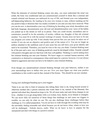
|
2017 jan 15

|
2017 jan 8

|
2016 nov 10
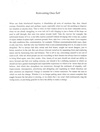
|
2016 nov 7

|
More... |
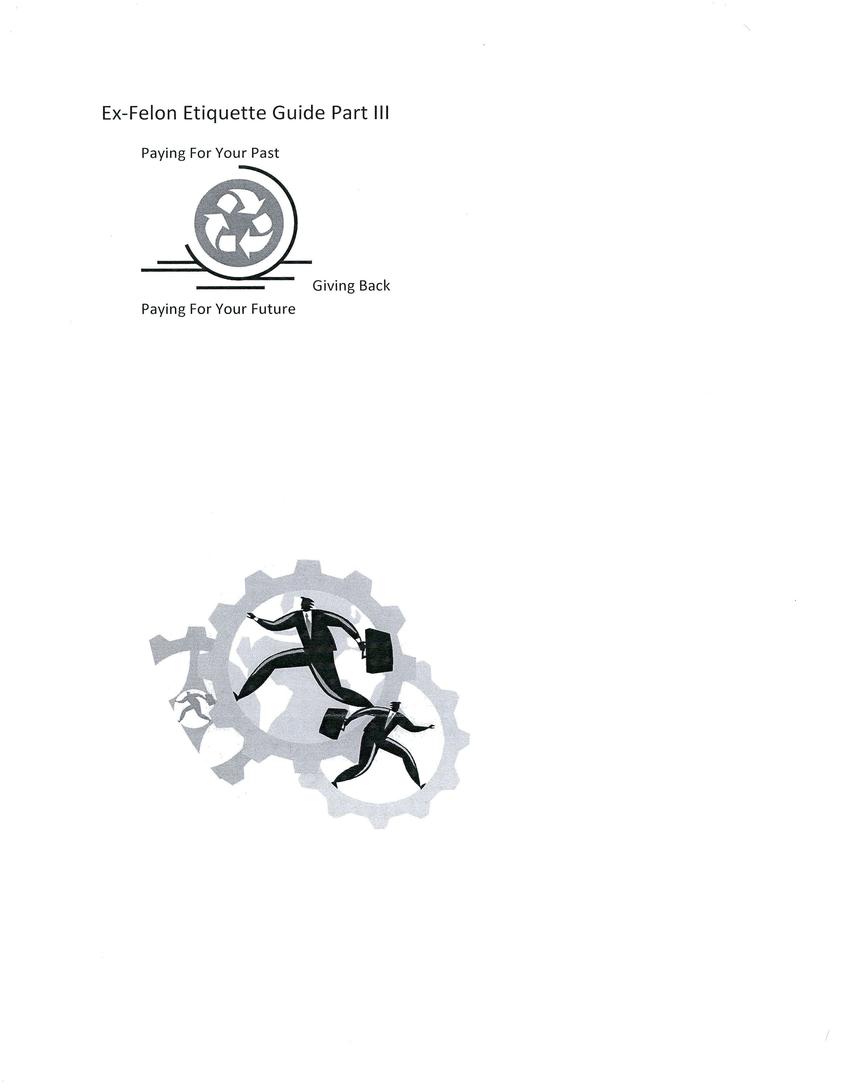
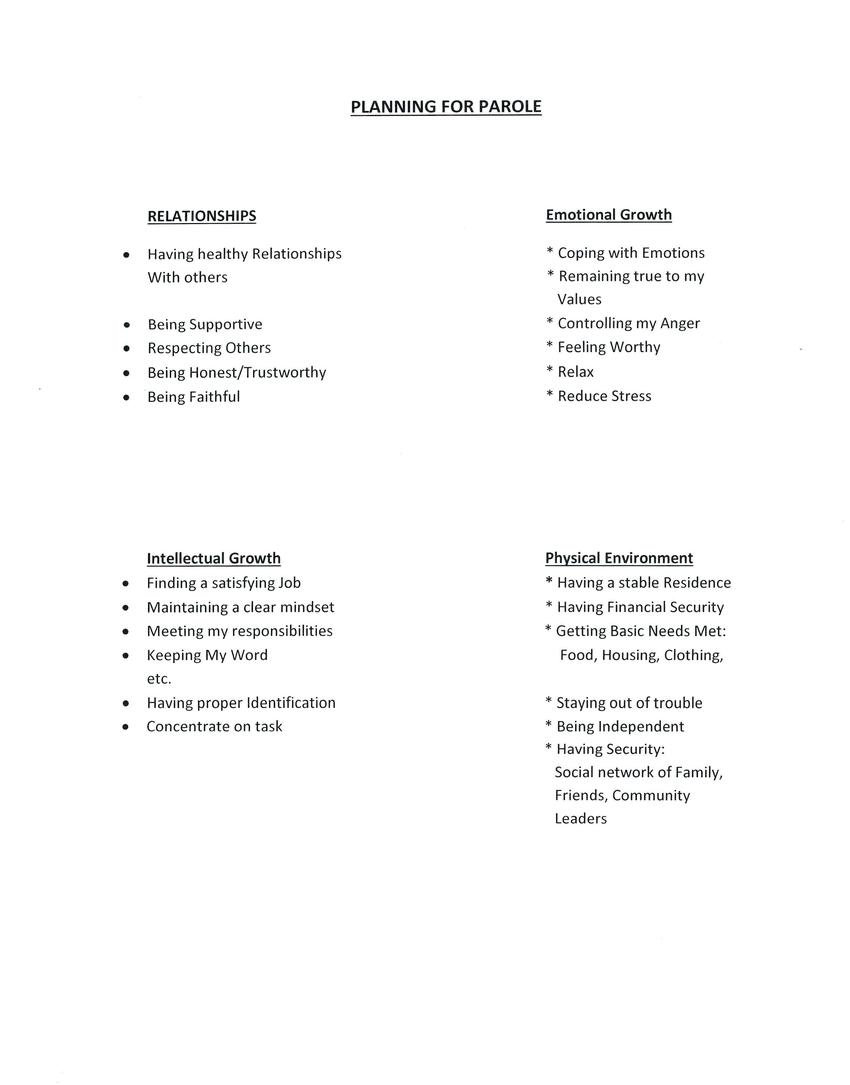
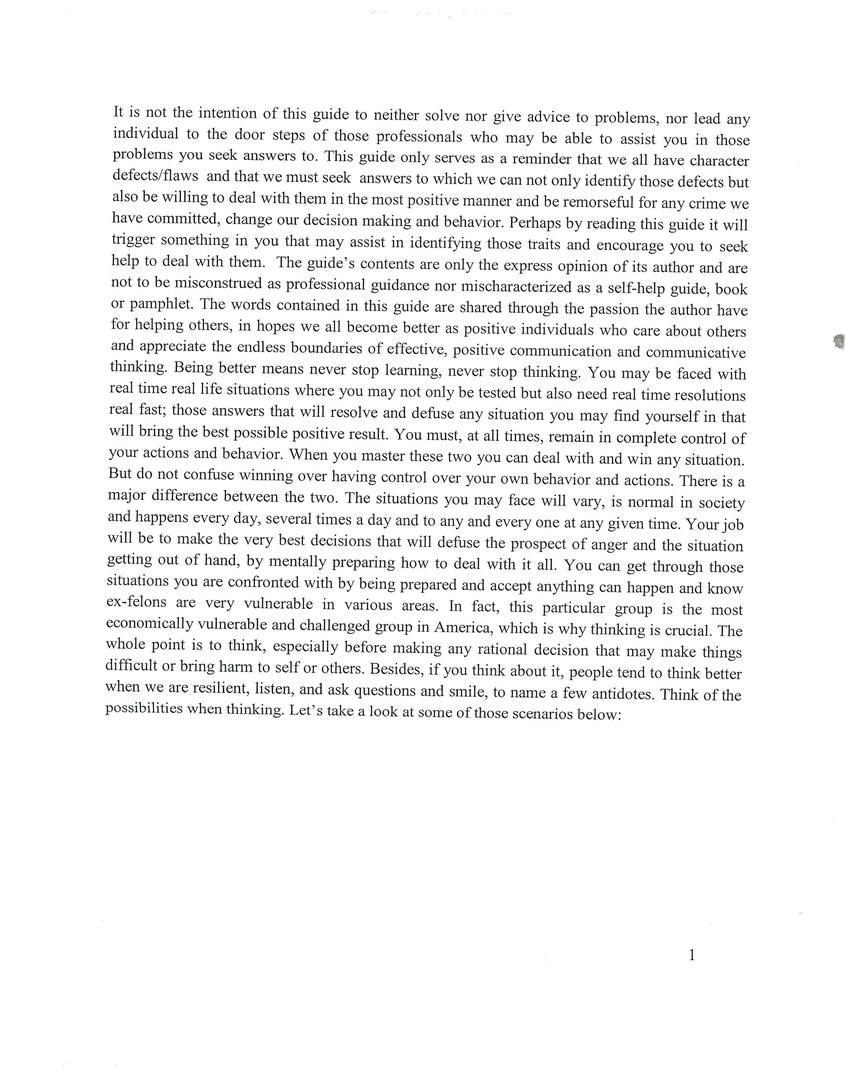
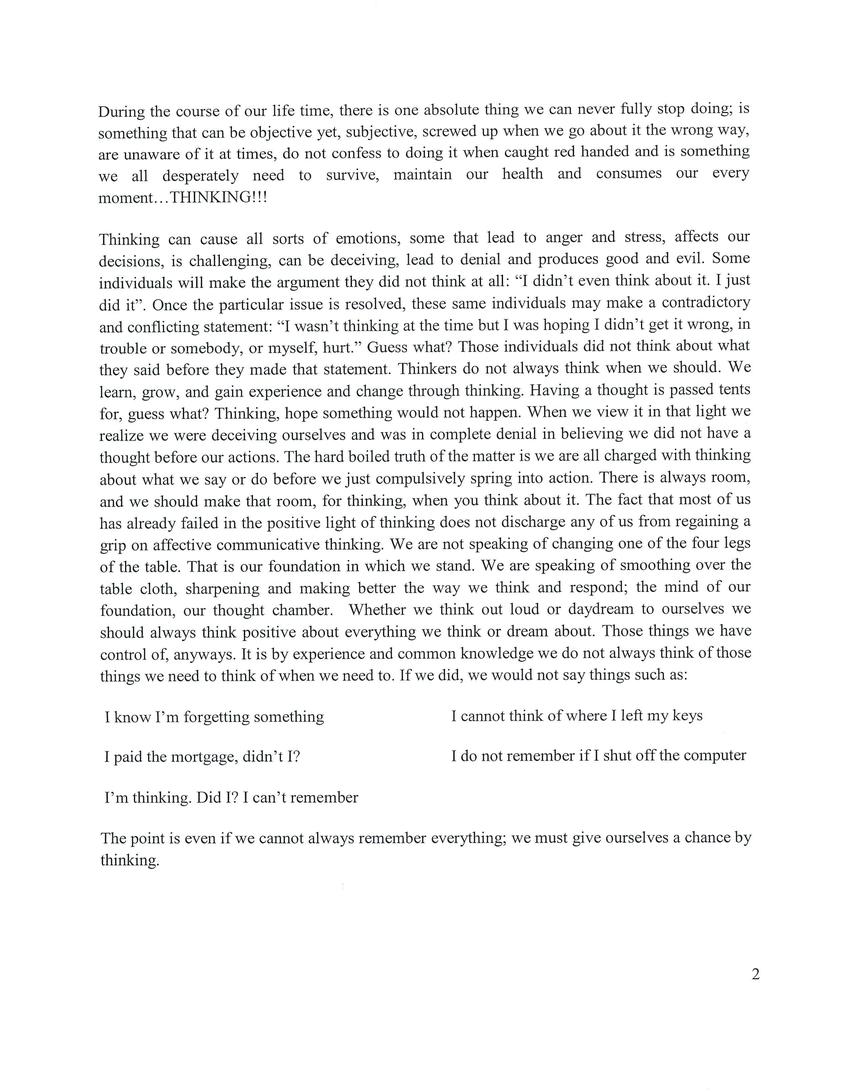

Replies